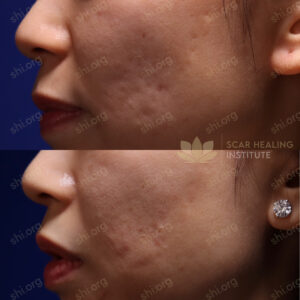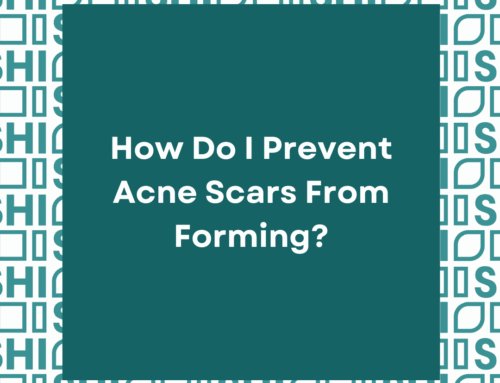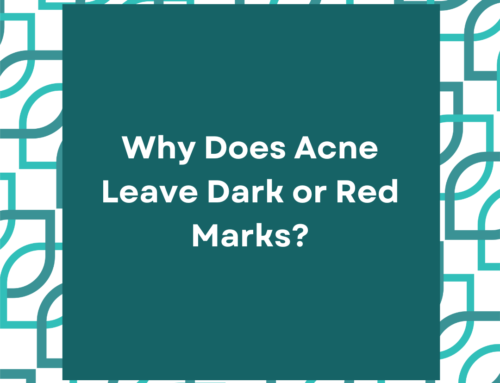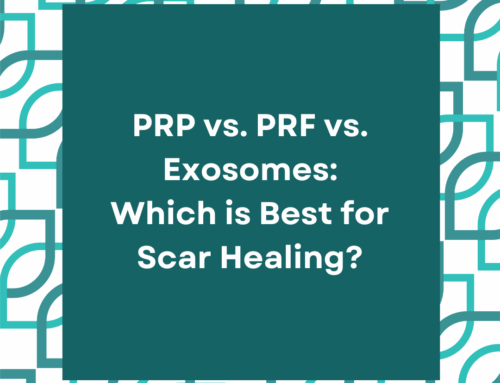A new controversial topic is whether accutane, a popular oral prescription drug used to treat severe acne, increases your risk of scarring. In this blog, we will discuss the benefits, risks, and considerations to be made when taking Accutane and how this should impact future acne and acne scarring treatment.
Scarring is an unfortunate and lasting consequence of acne, a condition that affects millions of individuals across the world. For many young adults, acne scars are physical and emotional reminders of their battles with acne.
The search for effective acne scarring treatments is still ongoing, as there is no universal cure for this disfiguring condition. Equally as important, however, is identifying the risk factors for acne scarring. Genetics, skin type and hygiene, environmental factors – and the list goes on – are known triggers for the development of acne scarring.
What is Accutane?
Accutane, also known generically as isotretinoin, is a potent oral medication used to treat severe forms of acne, notably cystic and nodular acne. Accutane is a type of retinoid, which is derived from Vitamin A. You might have heard of topical Vitamin A derivatives, such as retinols, tretinoin, differin, etc.
Accutane is essentially a highly concentrated oral version of those medications and exerts its effects through similar mechanisms – reducing oil production in the skin, preventing clogged pores, and alleviating inflammation. Because Accutane is such a powerful medication, patients must obtain a prescription from a physician and undergo close supervision throughout their 3- to 12-month course.
What are the side effects of Accutane?
Accutane is generally regarded as a very safe prescription for the treatment of severe acne. However, because Accutane contains such a high dose of vitamin A, it can lead to noticeable alterations in your body aside from your skin, including your eyes, liver, musculoskeletal system, and mental health.
Below are numerous side effects that you and your physician should discuss and anticipate during your course of Accutane, including:
- Dryness of the skin, lips, and eyes
- Increased sensitivity to sunlight
- Joint and muscle discomfort
- Thinning or loss of hair
- Mood swings and depression
- Dryness of nasal passages
- Vision changes or difficulties
- Liver metabolic changes
- Lipid and cholesterol profile changes
How do I know if I need Accutane?
Despite what we have said so far, you may still be super afraid that Accutane can ruin your skin – and not to mention other severe side effects. Whether you need Accutane will depend on how severe and resistant your acne is.
Generally, individuals with severe, widespread cystic acne who have not had success with other treatments, such as antibiotics, topical therapies, and dietary changes, will need Accutane to get their acne under control.
Accutane can be administered in varying doses. Some individuals are placed on a high dose of Accutane over a short period of time or a low dose over an extended period of time. How your physician calibrates your dose will depend on your evaluation throughout your course of treatment.
Does Accutane cause acne scarring or make scarring worse?
The idea that Accutane causes scarring is generally regarded as a myth today. This misconception likely comes from its side effects, such as skin dryness, which may contribute to the overall appearance of scarring.
Also, because dry skin tends to be more fragile, those who pick at their skin while on Accutane may certainly increase their risk for scarring. This is another very important reason why picking your skin is such an unhealthy practice.
Many dermatologists would say that Accutane can actually prevent acne scarring. Remember that acne scarring arises from prolonged inflammation in the skin. Accutane works by reducing inflammation, thereby preventing skin damage and subsequent skin scarring.
Also, keep in mind that scarring is a result of severe acne at the end of the day. Whether or not you take Accutane, your acne might have progressed to a point where Accutane can only salvage your skin so much. Taking proactive steps to control your acne is thus essential to maintaining healthy and radiant skin.
How soon after Accutane can I start acne scarring treatment?
In the old days, there was a hard “6-month” rule. The clinical guidelines stated that patients must wait a total of 6 months after their last dose of Accutane before starting acne scar treatment (For people who consumed alcohol during their medication course, this period would have to be longer since alcohol increases system retention of Accutane). The logic was that any Accutane lingering in your system could alter your healing response to acne scarring treatment and promote additional scarring.
A vast majority of dermatologists today, however, do not strictly abide by this rule. In fact, new emerging studies show that there is little indication of increased scarring with concurrent isotretinoin use and acne scarring treatment.1
The predicament then becomes this: is it better to start acne scar treatments as soon as possible when the scars are “fresh” (younger scars respond better to treatments) and risk additional scarring? Or is it better to wait the 6 months to prevent additional scarring but also risk your now “older” scars being more resistant to treatment?
There is now clear answer to this question, but generally “6-month-old” scars are still considered early in the scar maturation process.
Therefore, there should be more appreciable risk from abiding by the 6-month period. If you want a clearer answer, it may be wise to have your physician conduct a “test treatment” on a couple of scars to see how you respond.

Acne Scarring Active Acne Patient Results for Scar Healing
Does Accutane scarring go away?
Scarring will generally never “go away.” Scars are permanent marks made by your skin in response to trauma. In fact, many would argue that scars are made to prevent future injury to the same site due to its density.
However, the good news is that scarring from accutane is very treatable. There are a variety of manual and laser treatments available to treat your acne scarring:
- Chemical peeling or CROSS
- Microneedling
- Subcision
- Filler
- Fractional or fully ablative laser
- Radiofrequency
Keep in mind that not all treatments are created equal. Some treatments are better suited for flatter, hyperpigmented scars. Other treatments are more effective for rolling acne scars – and so on.
It is best to speak with a board-certified dermatologist to determine what treatments or combination of treatments is likely to produce the best results for your skin.
Conclusion
Accutane is definitely not a word that acne sufferers want to hear. However, with the right medical guidance and expertise, Accutane can drastically improve your acne and even prevent scarring in the future.
Additionally, there are a variety of alternative acne treatments that you can discuss with your physician before jumping immediately to Accutane. The possibility of scarring is a scary thought but is totally avoidable and treatable with the help of expert board-certified dermatologists at Scar Healing Institute in Beverly Hills, California.




